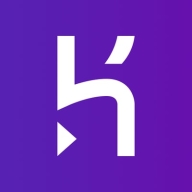

Heroku and Google Cloud are competing products in the platform-as-a-service and cloud computing markets. Google Cloud has the advantage in scalability and features, aligning it with enterprises needing advanced solutions, whereas Heroku is favored by startups for its simplicity and affordability.
Features: Heroku's features include seamless integration with multiple programming languages, an app-centric approach, and continuous integration capabilities. In contrast, Google Cloud provides robust infrastructure capabilities, advanced machine learning tools, and a comprehensive global network.
Room for Improvement: Heroku could enhance its scalability and offer more detailed customization options to attract more extensive user bases. Additionally, expanding its enterprise-level features would better cater to larger organizations. Google Cloud could improve its user complexity by simplifying deployment processes. Lowering pricing complexity and offering more beginner-friendly resources would be beneficial. Further enhancements in customer support could also help.
Ease of Deployment and Customer Service: Heroku simplifies deployment with its automated model and responsive customer support ideal for rapid launches. Google Cloud offers a complex deployment model with multiple custom options, supported by detailed documentation and extensive advanced support plans.
Pricing and ROI: Heroku offers competitive and predictable pricing, advantageous for budget-conscious teams which results in satisfactory ROI for smaller projects. Google Cloud features a complex pricing structure with scalable options that deliver high ROI for larger organizations, thanks to its comprehensive service offerings. The key difference lies in Heroku's predictable, lower-cost model versus Google Cloud's flexible pricing tailored for extensive use.
| Product | Market Share (%) |
|---|---|
| Google Cloud | 4.5% |
| Heroku | 3.5% |
| Other | 92.0% |


| Company Size | Count |
|---|---|
| Small Business | 42 |
| Midsize Enterprise | 8 |
| Large Enterprise | 32 |
| Company Size | Count |
|---|---|
| Small Business | 23 |
| Midsize Enterprise | 2 |
| Large Enterprise | 3 |
Google Cloud is an Infrastructure as a Service Cloud (IaaS) and Platform as a Service (PaaS) solution that provides infrastructure tools and services for building applications on top of a public cloud computing platform. As one of the leading global infrastructures, this product allows users to securely manage enterprise data, receive valuable insights, and store documents. Google Cloud provides its various services through tools and services for data warehousing, security key enforcement, application programming interface (API) management, artificial intelligence (AI), and machine learning (ML).
The use cases of Google Cloud can be divided into four main categories:
The solution is utilized by organizations of all sizes and industries, as it is suitable for the following purposes:
Google Cloud Features
Google Cloud offers multiple features for its clients. Some of these include:
Google Cloud Benefits
Google Cloud brings various benefits to its users. Some of these include the following:
Reviews from Real Users
Isuru P., an assistant vice president at a tech services company, likes Google Cloud because it is easy to deploy next-generation applications using it.
An IT solutions consultant at a tech services company rates Google Cloud highly because they find the solution stable with a good user experience and a straightforward setup.
Established in 2007, Heroku is a cloud application platform providing a streamlined, efficient place for web app developers to create and deploy their applications. Heroku is designed to maximize developer productivity. With the entire web application development process available on the Herokucloud, creating and rolling out web apps has been made more efficient, convenient, and cost-effective than ever before.
We monitor all PaaS Clouds reviews to prevent fraudulent reviews and keep review quality high. We do not post reviews by company employees or direct competitors. We validate each review for authenticity via cross-reference with LinkedIn, and personal follow-up with the reviewer when necessary.